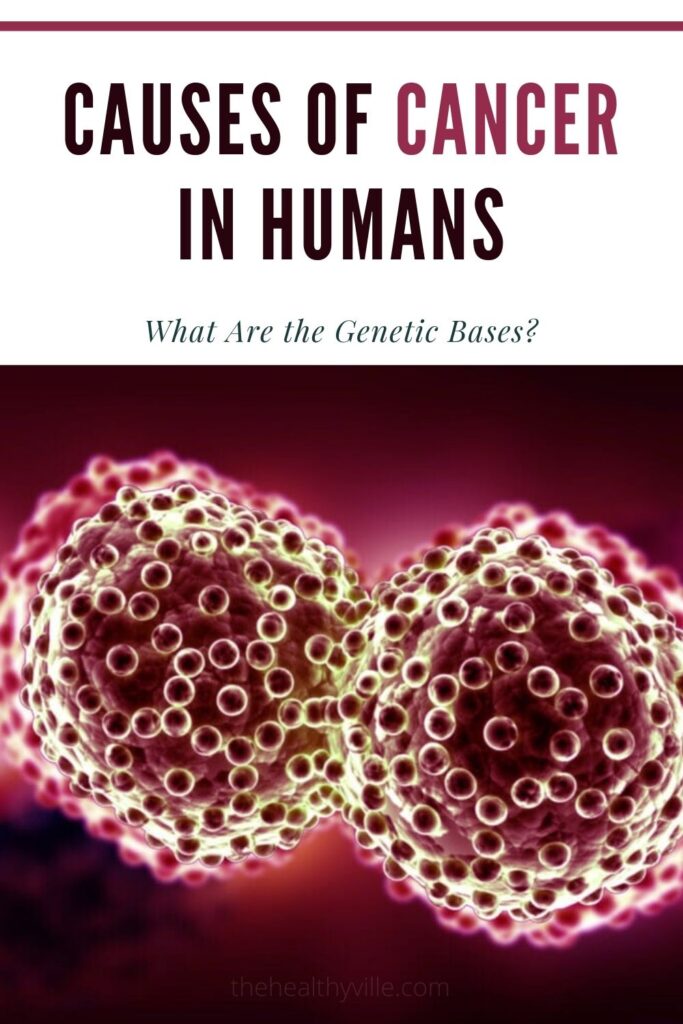Causes of cancer in humans sometimes have to do with genetics. What are the genetic bases of cancer in people? Find out everything!
Advances in the knowledge of the genetic bases of cancer promise to develop new treatments and new early detection methods. Along with this information, health education and psychological support are required.
It is interesting to know the genetic bases of cancer, although this disease depends on many factors, including environmental, health and lifestyle. Advances in the knowledge of the genetic bases of cancer are leading to the development of new treatments, as well as ways to identify people who are most at risk of suffering from it. This makes it easier to tailor treatments to the disease.
The evolution in the methods of genetic analysis and studies has given us the key to know exactly the genes related to the risk of suffering a certain type of cancer. The most important discovery is the BRCA1 / BRCA2 gene, in association with hereditary breast cancer.
How does cancer disease develop?
The set of diseases associated with cancer share a common origin and in which there are different alterations in the cellular repair mechanism.
When many genetic alterations take place, and which also accumulate, the development of cancer cells is favored. These malignant cells affect the control of the cell cycle, facilitating the appearance of cancer.
Genetic information is obtained by analyzing biological DNA samples. However, just because there is a change in the DNA sequence of a certain gene does not mean that you will develop cancer.
You can do this genetic analysis at any stage of your life, being able to compare your results with those of other relatives who have had them. In this way, the risk of suffering from a certain type of cancer can also be weighed.
Advances in the understanding of the genetic bases of cancer are leading to the development of new treatments.
What are the genetic causes of cancer in humans?
Today, there’s progress with colon and breast cancer screening programs. However, it is not enough to have these screening programs, it is also necessary to make the population aware of prevention measures.
In fact, to properly assess the characteristics of a hereditary cancer, doctors take certain variables into account usually, which are related to the patient himself or to her family. If some of these variables appear in the person who is undergoing the study, it may be thought that the cancer he suffers is genetic.
Related to the patient
- Presence of several primary tumors in the same organ or in different organs.
- Bilateral primary tumors.
- Younger than usual age at the time of diagnosis.
- Tumors related to birth defects or a hereditary precursor lesion.
Variables related to the patient’s family
- Two or more first-degree relatives with rare tumors.
- A relative from the first family circle with the same tumor or a related tumor.
- Two or more relatives from the first family circle with tumors in the same area.
- More than three relatives in two family generations with tumors in the same area.
- Two or more relatives from the first family circle with tumor types in association with a familial cancer syndrome.
What is genetic counseling?
The aim of the counseling is to give pertinent information to both the patient and their families about the results of the genetic study.
The process consists of the following phases:
- Study of both individual and family medical history.
- Obtaining and analyzing genetic information.
- Communication of the results.
- Education for health.
- Decision support if necessary.
- Tracing.
Having a genetic study gives you the option of adopting concrete measures to improve your health and prevent disease. In addition, another great advantage offered by the genetic study is the diagnosis of cancer in the earliest stages. With it, the chances of cure increase significantly.
Analysis of the genetic bases of cancer
Genetic tests on cancer began with the study of families in which the risk was high. In general, in these families there were numerous cases, and that is why studies of the genes that could be related to the disease began.
In these analyzes, doctors take several factors into account. Such are he total number of family members, the number of members provided by a DNA sample, the age of onset of the disease, or the number of cases in the family.
Conclusion
People who inherit a specific variant in their DNA have a genetic predisposition to develop a type of cancer. Today, doctors can locate these before cancer develops, hence prevent them.
The scientific responsibility of being able to identify the risk of cancer requires human commitment also to accompany the process of those who access genetic counseling.
Don’t forget to SHARE the info about the genetic causes of cancer in humans with your friends and family on your social networks!

